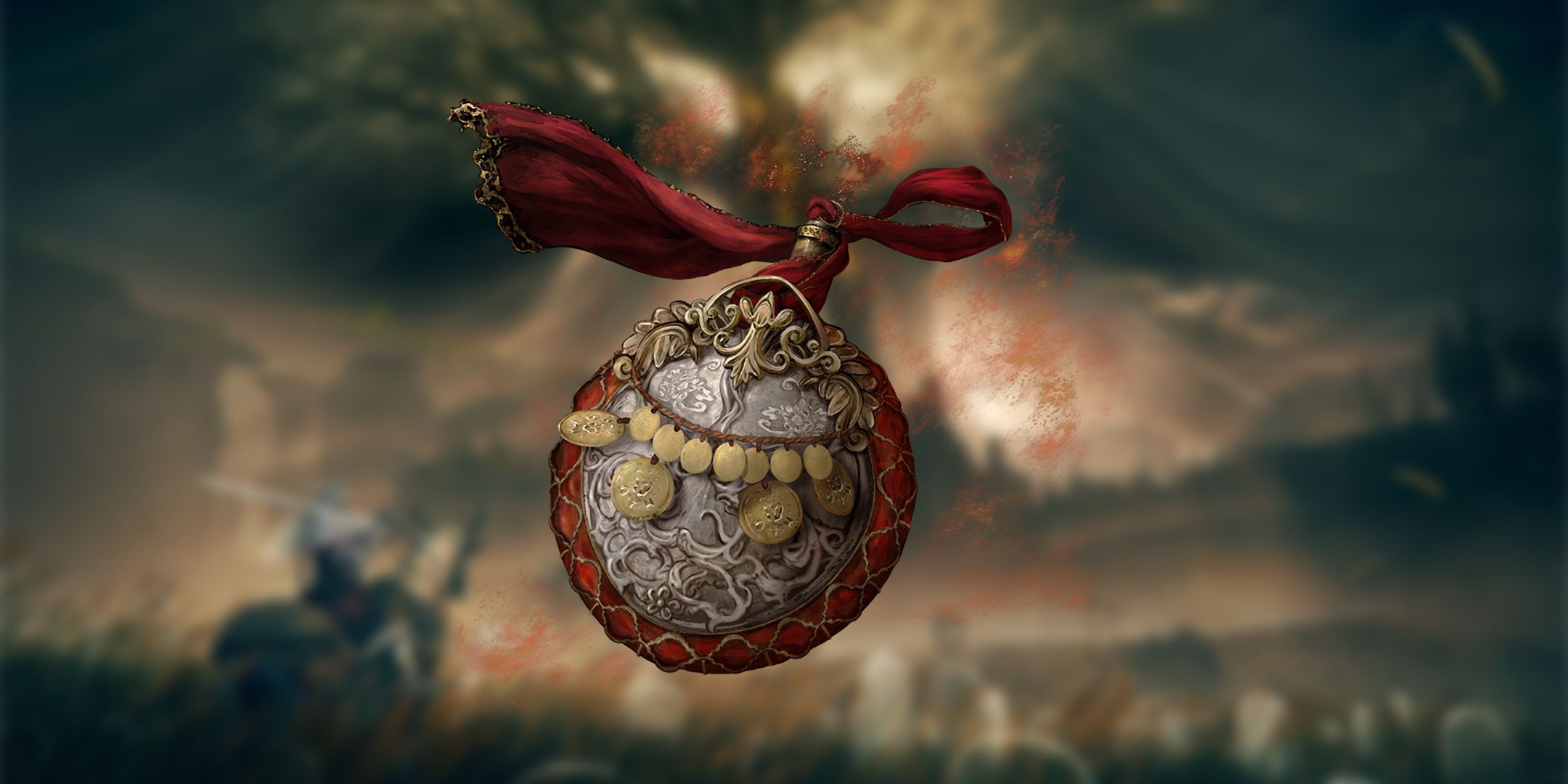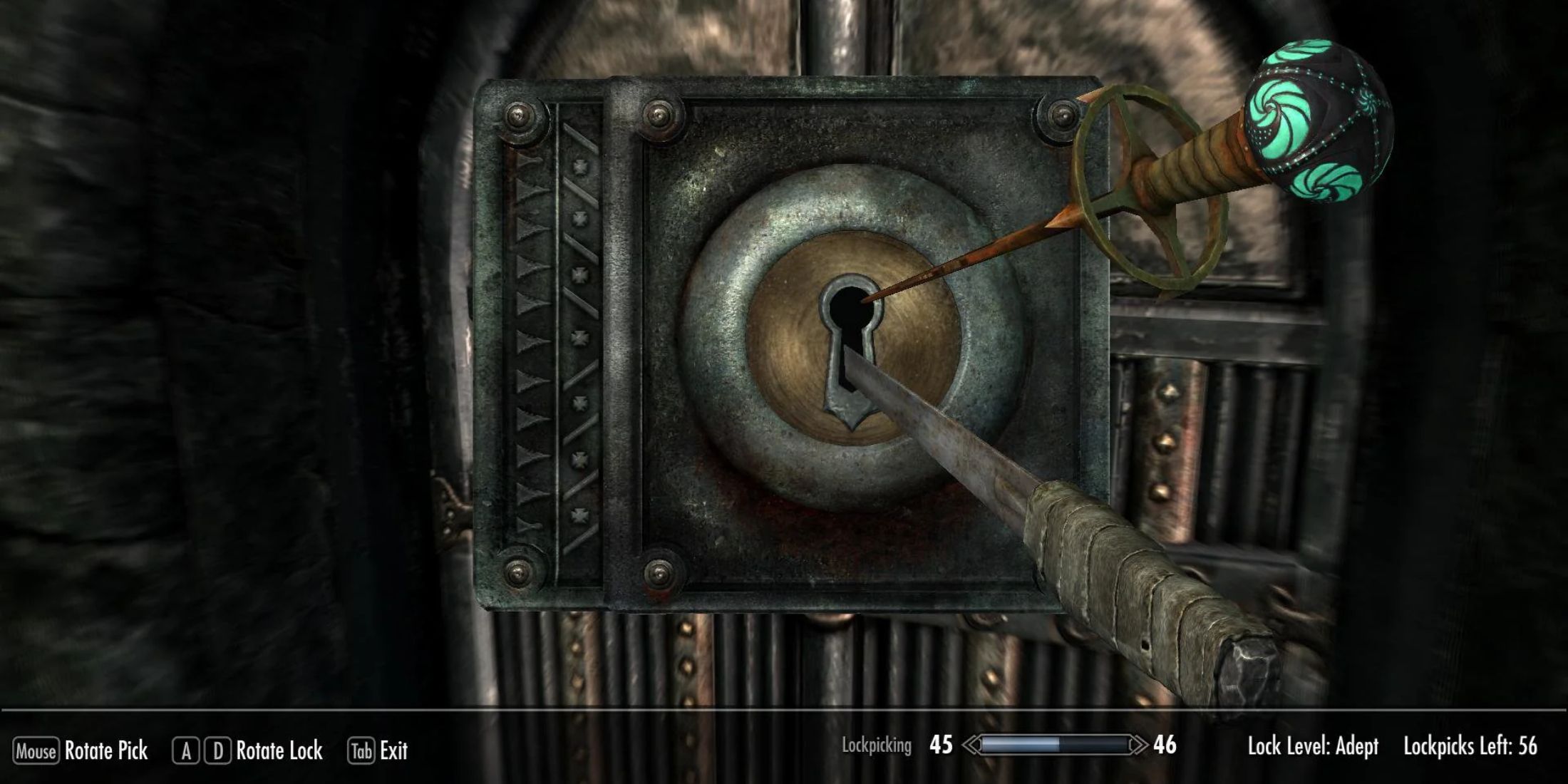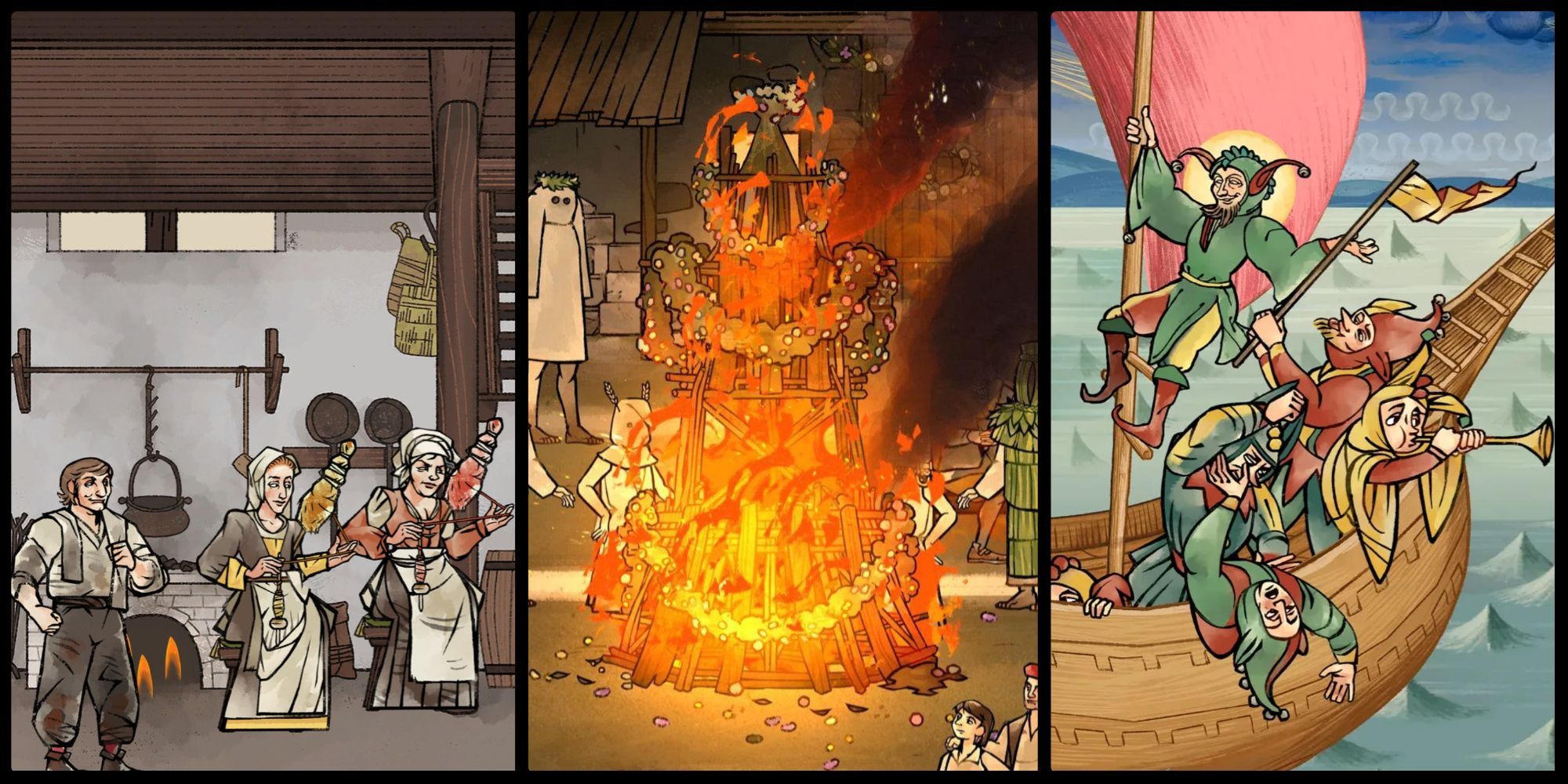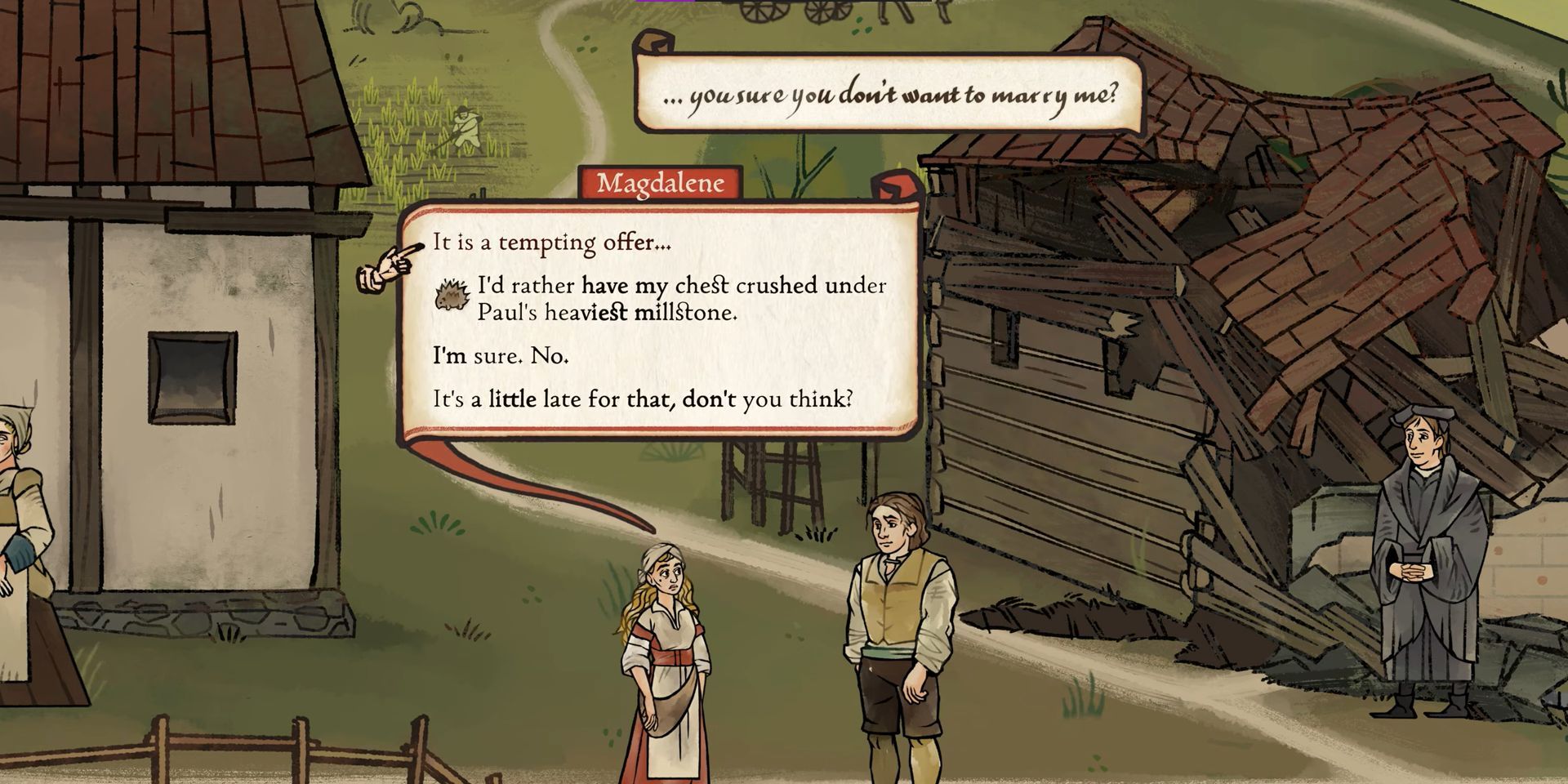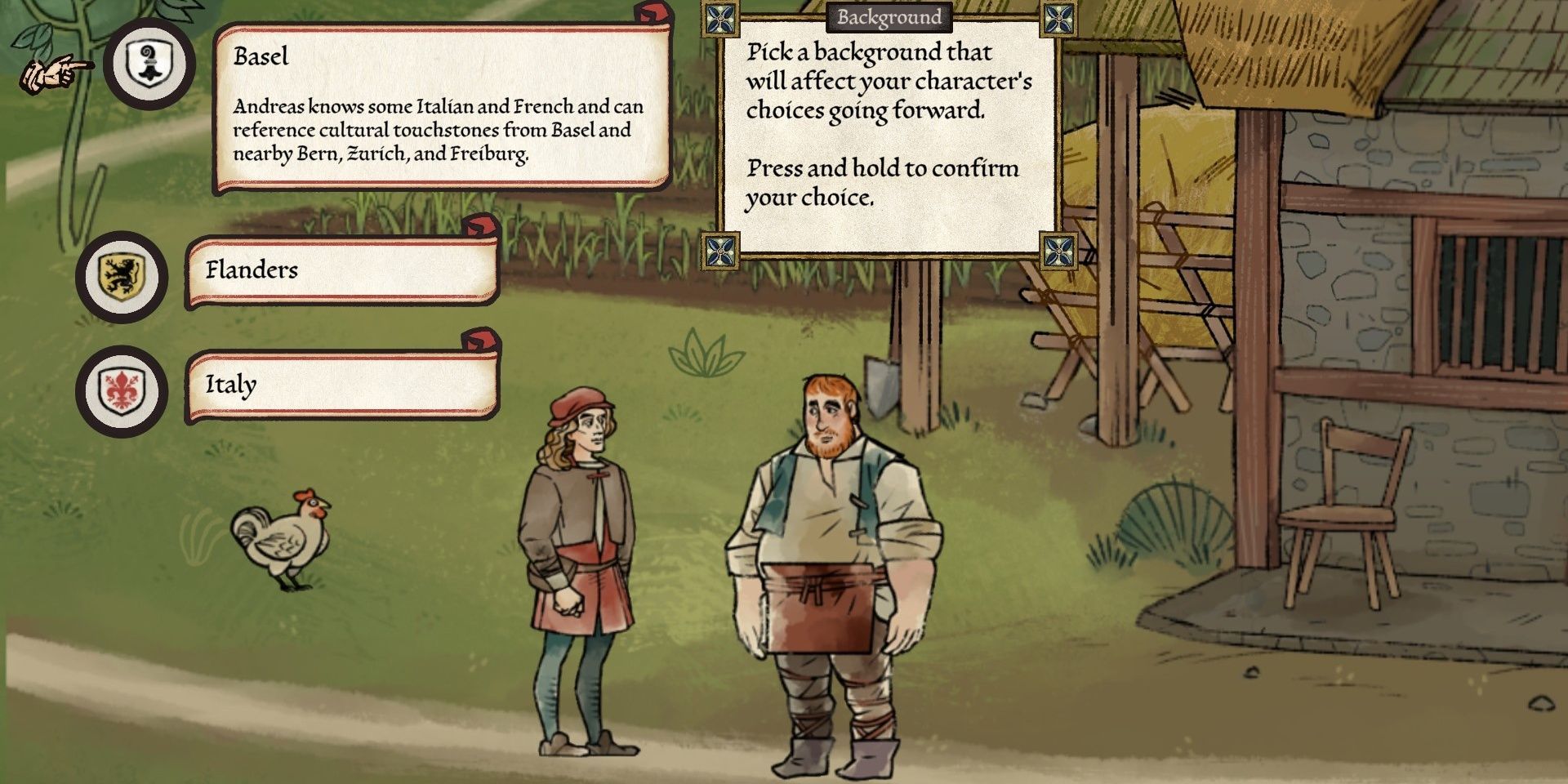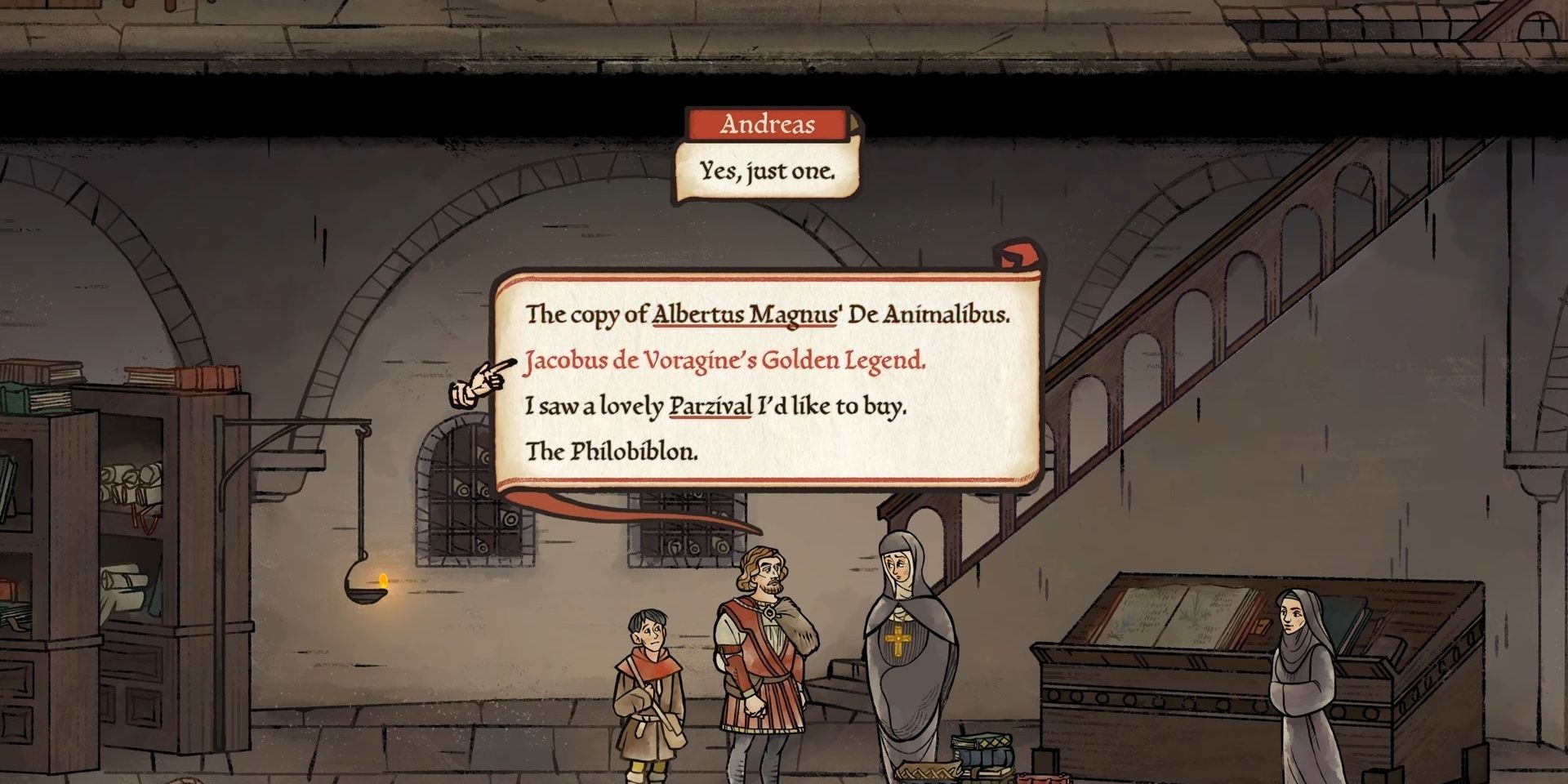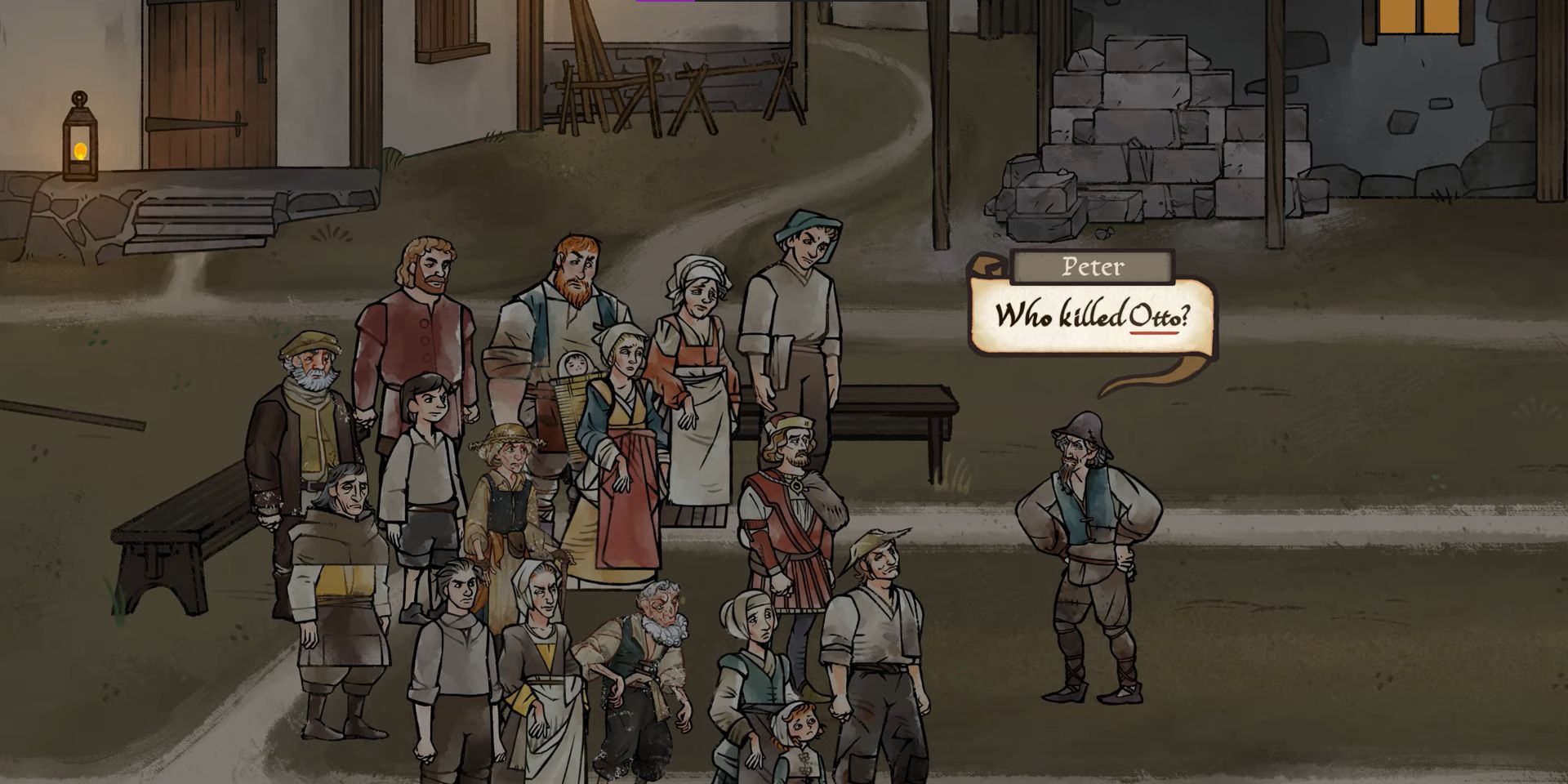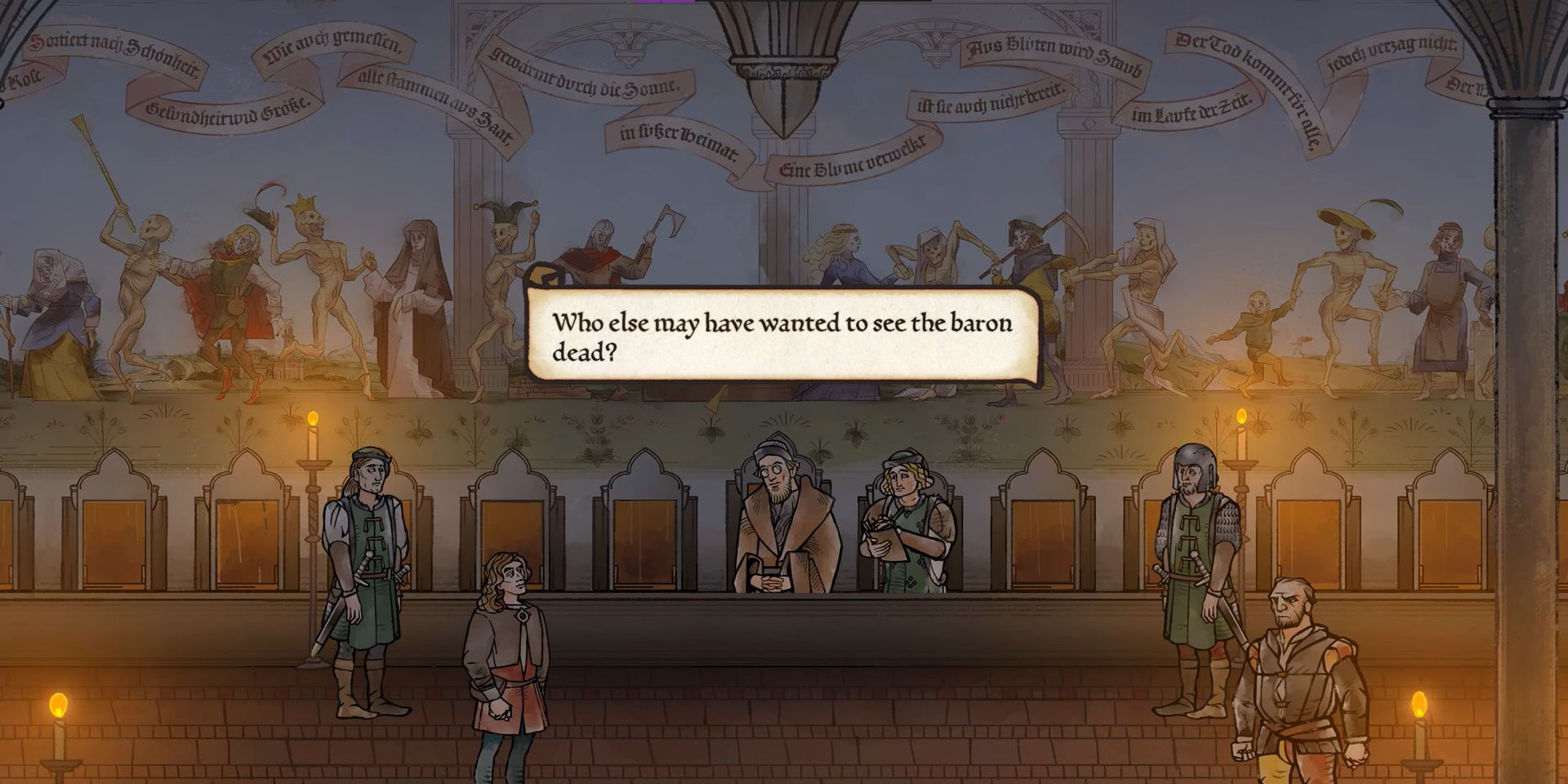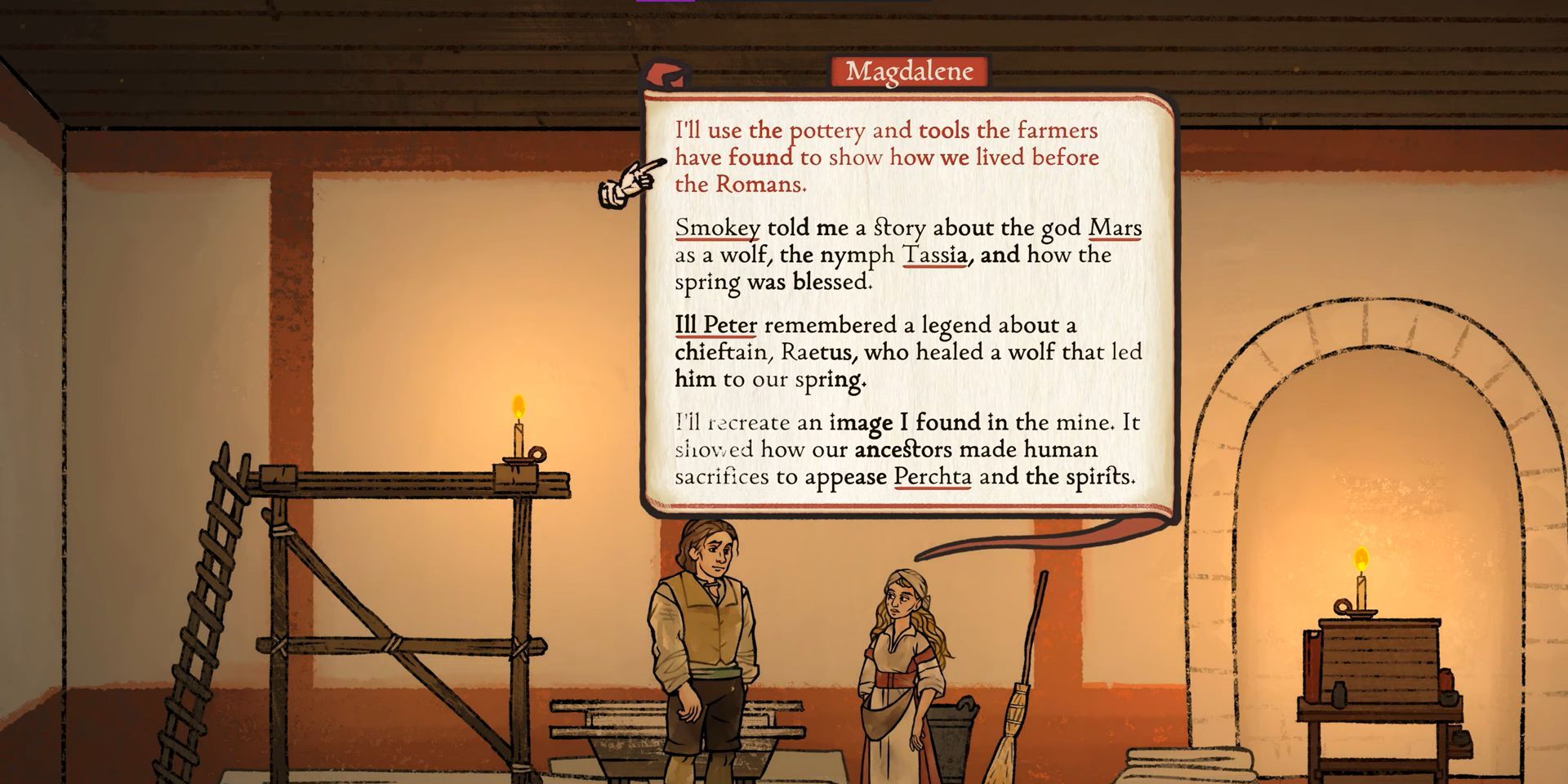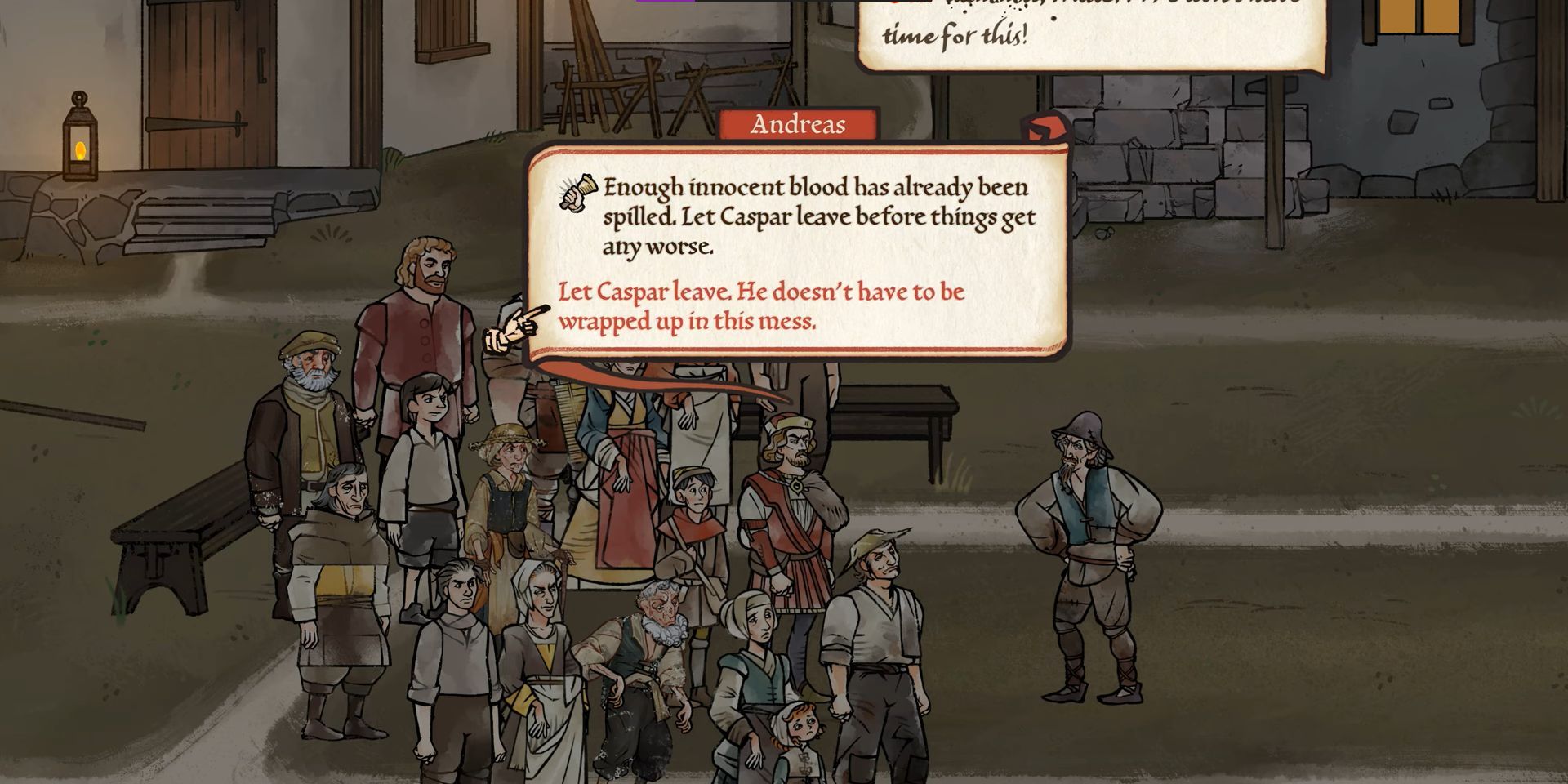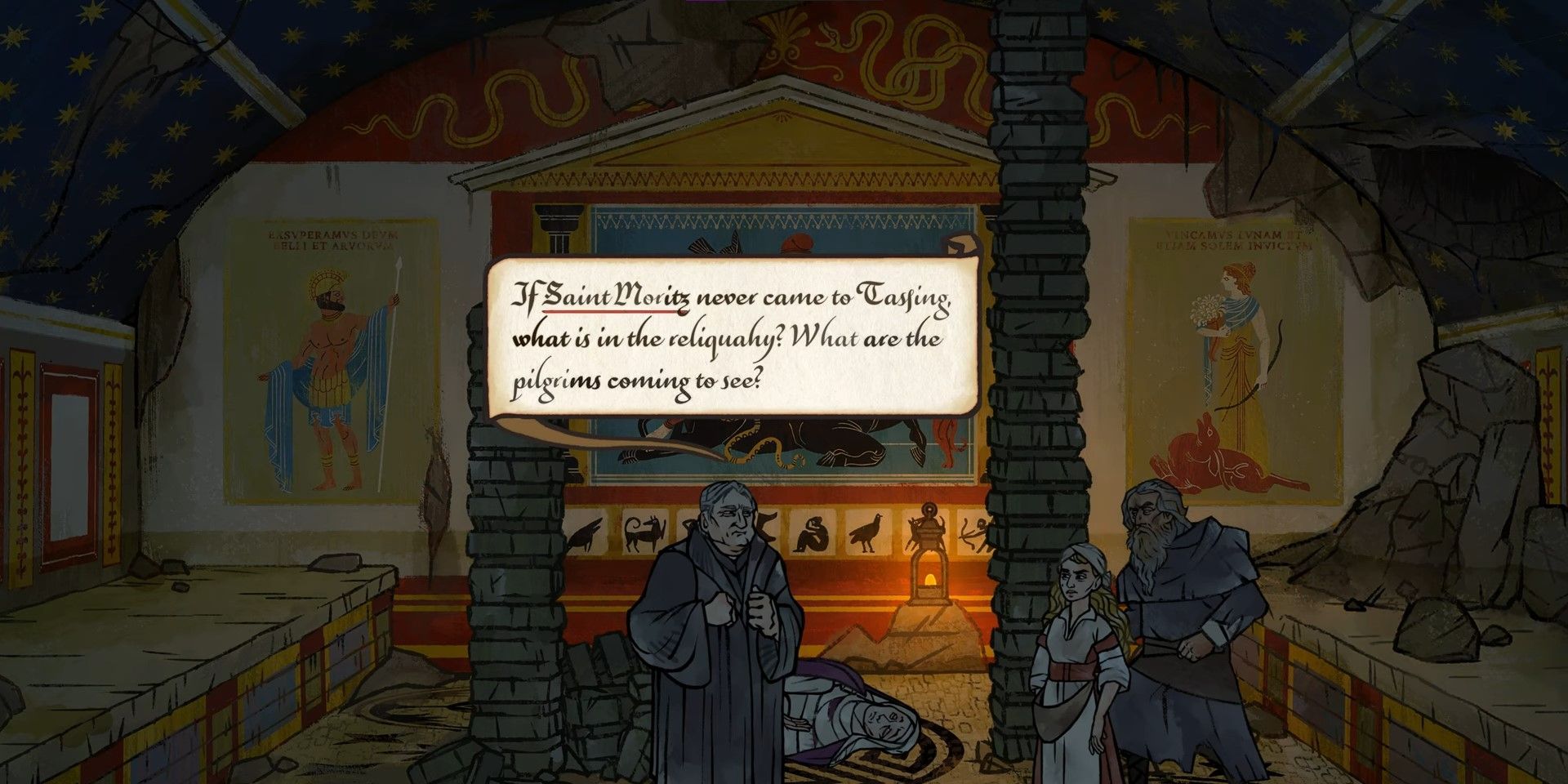Obsidian’s newest RPG Pentiment is full of interesting choices. These can be as simple as who to dine with or genuine moral dilemmas, the consequences of which will span decades. Of all these choices, the most influential won’t always be the most obvious, nor do they always take the most time to answer.
Most often, a choice is considered important because of how much it influences the course of the game. While some of that does apply to Pentiment, a handful of key decisions that players will have to make won’t change the course of the game. The importance of making those decisions, and what their choices say about the player, is core to the game’s identity.
8 Accept Or Refuse Otz’s Advances
During Act 3, players will be given control of Magdalene, an artist and the village printer’s daughter, as she works on a mural on her father’s behalf. These last few hours of game will make it clear that Otz, the son of the second murder victim Otto Zimmerman, is clumsily flirting with Magdalene.
How the player answers Otz during Act 3 doesn’t seem to matter much. They can choose to have Magdalene reciprocate, ignore, or refuse him. What matters most is the last conversation the two share before the girl leaves town, during which Otz will outright ask her if she might consider marrying him. Still, shooting down Otz or leaving the door open for him only changes the following dialogue and a detail in the final mural.
7 Choosing Background And Skills
While players might expect that one’s background and abilities would influence the path the story takes, they only really affect what information the player is given. Every combination of endings can be reached with any character build.
Pentiment has many secrets that don’t affect the ending at all, so many that it is fundamentally impossible to see even half of them in a single playthrough. Because of this, a propensity for a certain language or a friendship forged over common knowledge can deeply affect the direction that players will give to the story.
6 Choosing A Book To Gift To Magdalene
Though the game never makes it clear, the trait that Magdalene starts with isn’t predetermined but is the result of an action taken years prior, during Act 2. The choices are between a medieval romance book, a history of the saints, a book of animals, and a text about book preservation.
Just like any other trait Andreas had, and every other trait that Magdalene will soon receive, calling those “skills” wouldn’t be entirely correct. Unlike the “speech” or “barter” skills of more traditional RPGs, selecting those special options during dialogue scenes doesn’t always lead to a better result.
5 Who To Accuse Of Otto’s Murder
Otto is the second person to be killed in the village during Andreas’ visit, 7 years after the first murder. It will be soon clear to players that the murders are connected, given the reappearance of the ominous letters written in a refined, purple gothic calligraphy.
Unlike with the first murder, the player is unlikely to believe themselves an investigator. If before there wasn't time to complete the investigation, now it can barely even start, and every suspect is just as inscrutable as before. Once Andreas decides who to present as the town’s scapegoat, either Martin or Hanna, their fate will be sealed. This, strangely, doesn’t seem to change anything else for the town’s future.
4 Who To Accuse Of Baron Lorenz’s Murder
The murder of Baron Lorenz during Act 1 of Pentiment is likely the first and last moment in which players will act as if their investigation was in any way rigorous or trustworthy. In other words, this is when players realize that this isn’t a murder mystery and that they’re simply deciding who gets to die for a murder no one really understands.
The suspects are four, more than in Otto’s murder: Ottilia, Lucky, Sister Matilda, and the Prior Ferenc. They all have their reasons to kill the baron, but the more players know about them, the less they will look like killers. Regardless of which of them, if any, is really a murderer, all of them have a role to play in the future of the town, a role that will be cut short if they are sentenced to death.
3 Deciding What To Paint On The Mural
Deciding what to paint on the mural commemorating the town, on the walls of the rathaus, will change the finished piece as shown in the last cutscene. The four sections of the mural show the history of the town from its founding to the revolt seen in Act 2. On top of affecting a cutscene, choosing what to paint invites players to reflect on their own understanding of history.
Even just considering the first panel, players can choose to represent the pre‑Christian history of the town by portraying its citizens while farming, or while conducting pagan rituals. The game makes it clear that both activities did happen, and both influenced the town’s modern customs. Choosing which to paint, then, lets players express what of history is worth remembering.
2 Being Strict With Caspar And Saving Him
Counterintuitively, being nice to Andreas’ assistant Caspar isn’t the best choice for him. Being a lenient master will prompt Caspar to stay by Andreas’ side instead of leaving town as the Landsknechte attack. This leads him to sacrifice himself to save Andreas after he runs into the fire in an attempt to save the library’s books.
This is all the more tragic if players remember that Andreas’ son also died young, and that his decision to stay away from home with his pupil was an attempt to make up for his loss. Andreas’ kindness isn’t rewarded, but it does make the following two decades spent in hiding more realistic.
1 Revealing The Truth Behind The Town’s Saints
Choosing whether to divulge the Roman origins of the town’s protector saints will put players in control of the conspiracy running throughout the game. Saint Satia and Saint Moritz never came to the town of Tassing and never performed the miracles that the town thanks them for. The legends evolved from the myths engraved in Latin all over the town's roman ruins, just like the Romans learned the legend from the people that were there before.
No one seemed to have realized this because no one in town had access to a grounded account of history. That account, in this 16th-century town, would be the Historia Tassiae. Father Thomas believed that, if the book had been found and its contents revealed, the already troubled abbey would have had to close. For this, he killed the old abbot and planned the murders of Baron Lorenz and Otto, as well as that of Magdalene’s father. Players can choose whether to keep this secret hidden or let it die with the conspiracy. Their decision will affect the last panel in the mural.
Pentiment is available on PC, Xbox Series X/S, and Xbox One. It is also available on Xbox Game Pass.


